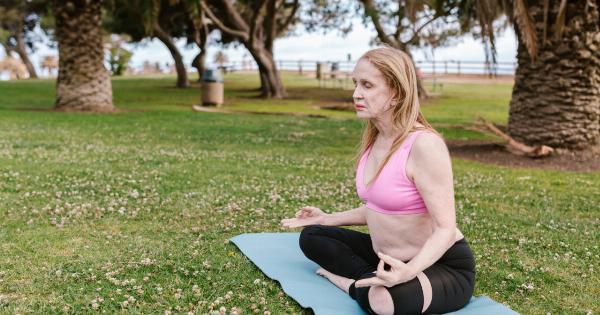Mental well-being is a crucial aspect of overall health and happiness. Many people struggle with various mental health issues, including anxiety, depression, and stress which can negatively impact their daily life.
It is no secret that the environment in which we live can have a significant effect on our physical and mental well-being. Natural surroundings and landscapes, such as forests, mountains, and coastal areas, have proven to promote a healthy mind, body, and spirit.
Benefits of Natural Surroundings on Mental Well-being
1. Decreases Stress and Anxiety Levels
High levels of stress and anxiety can lead to physical symptoms such as headaches, heart palpitations, and insomnia, among others.
Research has shown that spending time in nature can significantly reduce cortisol levels, which decreases stress and anxiety levels. Even just a short walk in nature can help reduce these symptoms and improve overall mental well-being.
2. Boosts Mood and Provides a Sense of Calmness
Nature has a calming effect on the mind and body, which enables us to relax.
Exposure to natural surroundings increases endorphins and serotonin production, which are neurotransmitters that help elevate mood, decrease pain, and give us a sense of overall well-being. The sights, smells, and sounds of nature can have a profound effect on our mental state and improve our mood.
3. Helps with Mental Fatigue
The modern world can be both mentally and physically exhausting, leading to mental fatigue and burnout. Being in natural surroundings can help reduce mental fatigue and improve overall cognitive function.
Studies have shown that a brief walk in the park can improve focus and concentration, reducing the effects of mental fatigue.
4. Enhances Creativity
Exposure to natural surroundings can help boost creative thinking and problem-solving skills.
Studies have shown that outdoor environments can help improve cognitive functioning, which could lead to increased creativity, imaginative thinking, and better decision-making skills. So, if you feel mentally blocked, spending some time in natural surroundings could help provide the inspiration and creativity boost that you need.
5. Provides a Sense of Connection to the World
Living in large cities can sometimes provide a sense of disconnection from nature and your surroundings.
Getting away from the hustle and bustle of city life and connecting with nature can provide a sense of grounding, peace, and connection with the world around us. It allows us to be present in the moment and appreciate the simple beauty of the natural world.
6. Improves Sleep Quality
A good night’s sleep is essential for good mental and physical health. Exposure to natural surroundings can help improve sleep quality by the production of melatonin, which is essential for regulating the sleep-wake cycle.
Additionally, the calming effect of the natural surroundings can lead to a more restful and rejuvenating sleep.
7. Promotes Physical Activity
Natural surroundings provide ample space for physical activity that can help improve overall physical health and mental well-being.
Activities such as hiking, biking, and swimming are great ways to increase physical activity levels while enjoying the natural surroundings. Regular physical activity is necessary for good mental health, and being surrounded by nature can make exercising feel less like work and more enjoyable.
8. Offers an Escape from Technology and Noise
The constant use of technology and exposure to noise pollution can negatively impact mental health. Nature provides an escape from the constant noise and distractions of the modern world.
Getting away from screens and noise pollution can help promote relaxation, reduce stress and anxiety levels, and improve overall wellbeing.
9. Helps with Seasonal Affective Disorder (SAD)
Seasonal affective disorder (SAD) is a type of depressive disorder that occurs during the winter months. The lack of sunlight during the winter can cause feelings of depression, exhaustion, and irritability.
Exposure to natural surroundings during the winter months can help alleviate SAD symptoms by providing a natural source of light, fresh air, and outdoor activities.
10. Provides a Sense of Gratitude and Mindfulness
Being surrounded by the beauty and simplicity of nature can help us appreciate and be grateful for the things we have in our lives.
It promotes mindfulness and encourages us to be present in the moment, which can reduce anxiety and increase overall mental well-being. Additionally, spending time in natural surroundings can help put our problems into perspective, allowing us to see things from a more positive and healthy perspective.
Conclusion
Spending time in natural surroundings is essential for good mental health and overall well-being. It provides a calming effect that reduces stress and anxiety levels, improves mood, and promotes a sense of well-being.
It also promotes physical activity, creativity, and mindfulness, helping us connect with the natural world and improve our mental and physical health. With all these benefits, it’s no wonder that people have found nature therapeutic and continue to seek it out as a way to improve their mental health.































